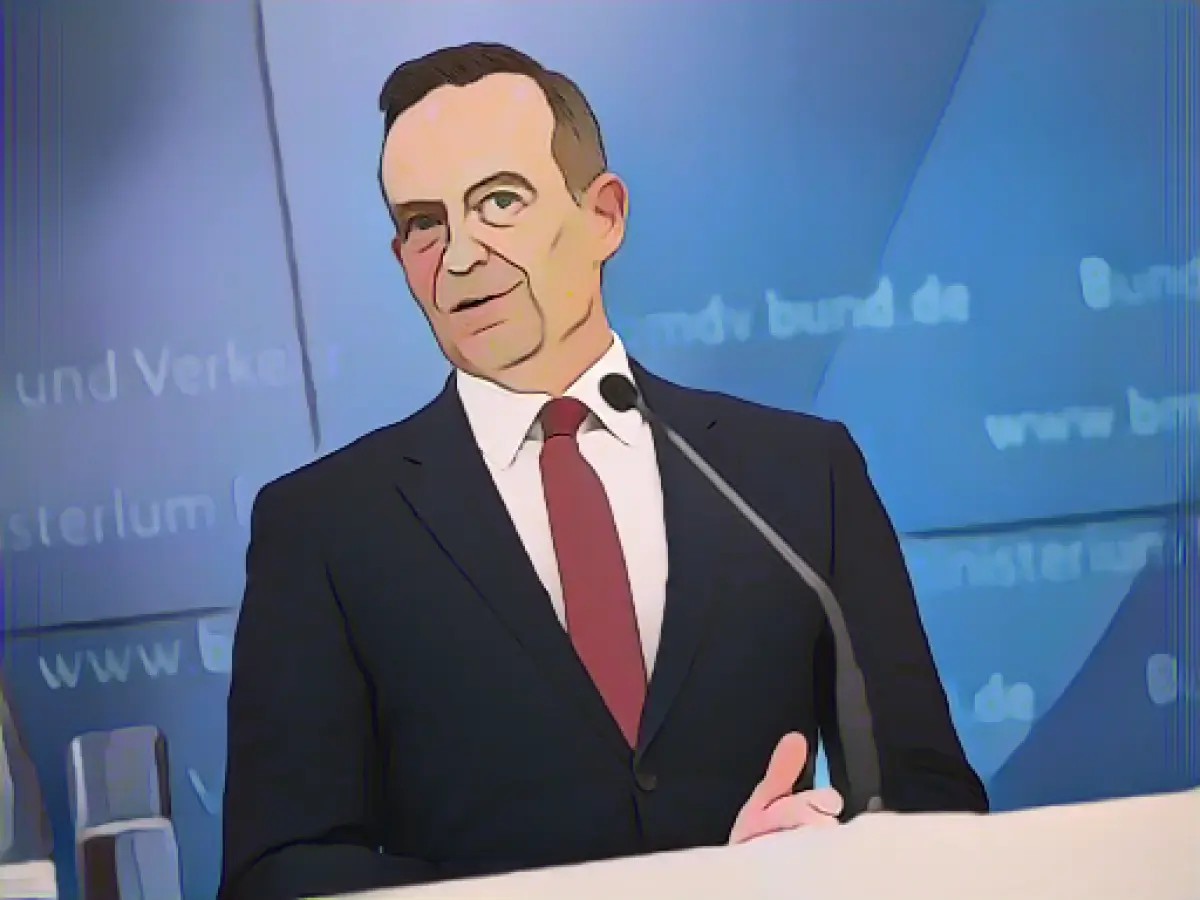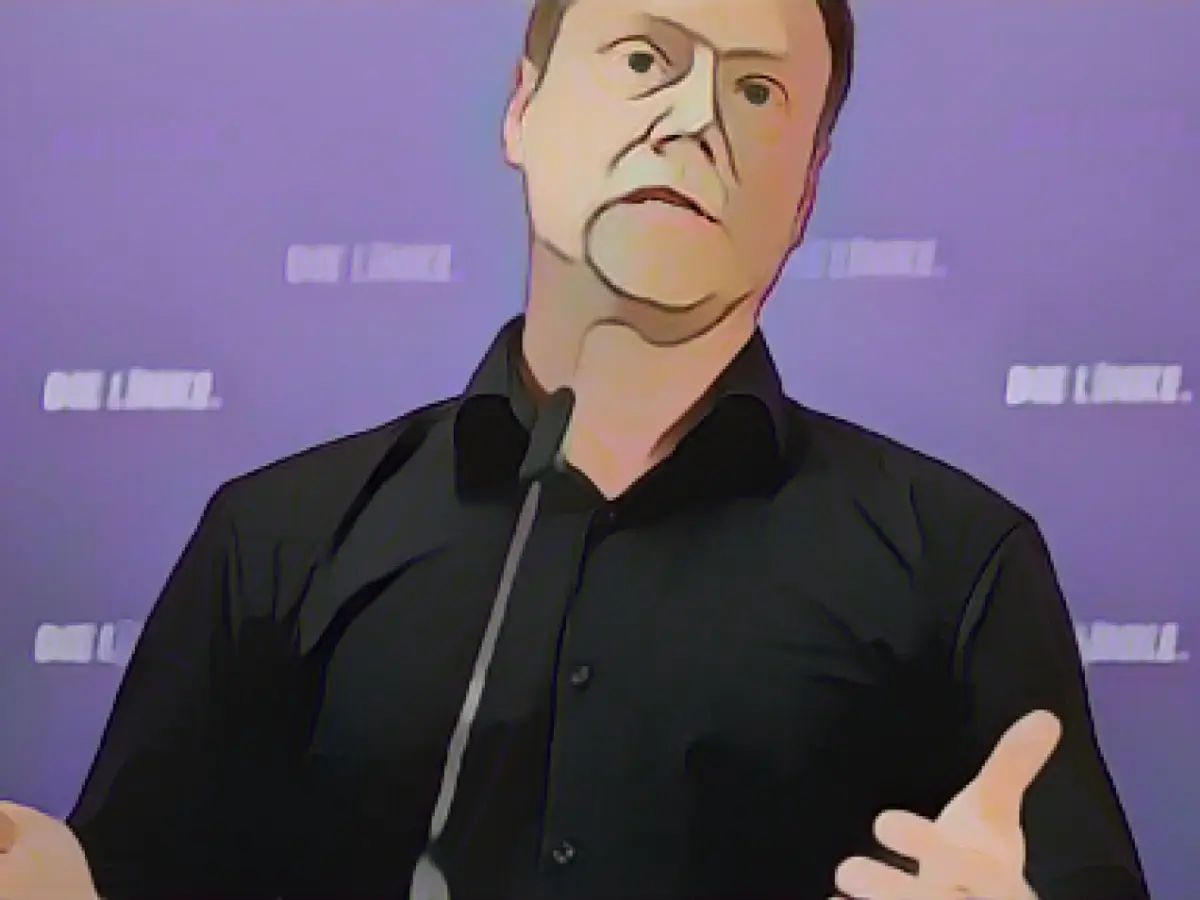Debate over Debt Brake Reform: Is It Just for Show? 💸💬
Federal Transport Minister Volker Wissing (FDP) views the ongoing debate about revamping the debt brake to address the current financial crunch as a "sham discussion." In an interview with the German Press Agency in Mainz, Wissing expressed his doubts about the possibility of securing a constitutional majority for such reforms. "This is an empty debate, while we're grappling with real problems,” he said.
Even critics questioning why the federal government didn't have a backup plan B fail to grasp the magnitude of the situation, according to Wissing. "With such enormous sums at stake, you can hardly have a fully-fledged plan B. That would demand an enormous amount of work. You can't just conjure one up on the spot," he added. Creating a plan B requires extensive effort and resources, he explained.
Recent discussions suggest modifying the debt brake to separately consider loans for investments as opposed to consumer spending. However, the German Constitutional Court's ruling has placed a significant obstacle in the way of reallocating around 60 billion euros in undrawn coronavirus loans for climate protection and industrial modernization.
In light of the ruling, a new prioritization strategy is being implemented for public spending, emphasized Wissing. This process is central to politics and currently underway.
As the country grapples with possible debt brake reforms, several factors come into play. For instance, lowering the debt brake threshold to enable more flexibility in borrowing for vital investments may be an option. Annual emergency credit authorizations could also be linked to associated spending in each year, ensuring that borrowed funds are utilized effectively.
Furthermore, reforming the handling of special funds is necessary to ensure they are properly accounted for in debt brake calculations. This should help prevent misuse of these funds, as observed during the COVID-19 pandemic.
The eventual government configuration following the election will likely impact deter-mining the fate of debt brake reforms. Prospective coalition configurations with either the SPD or the Greens may introduce changes to the debt brake rules in a bid to balance fiscal responsibility with investment necessities.
While the ongoing debate on modifying the debt brake faces significant challenges, the Constitutional Court's ruling has highlighted the need for a thorough reassessment of public financing for fundamental initiatives like climate protection and industrial modernization.
Source:
Insightful Information:
- Flexibility in borrowing limits: Proposals for modifying Canada's debt brake may include lowering the threshold from 0.35% of GDP to a lower percentage such as 0.15%. This would provide more flexibility for borrowing to fund essential investments.
- Realistic repayment plans: The debt brake requires the government to implement realistic repayment plans for any loans, to ensure fiscal responsibility and avoid excessive debt.
- Exceptional circumstances: The debt brake allows for borrowing in exceptional circumstances such as natural disasters or extraordinary emergencies, but such borrowing must be approved by a majority of the constitutional members of the German Bundestag.
- Coalition negotiations: The eventual coalition following the election may influence the outcome of debt brake reforms, as both potential coalition configurations (CDU/CSU with the SPD or the Greens) may consider revising the debt brake rules to prioritize investment needs while ensuring fiscal discipline.
- Handling of special funds: Amendments to accounting rules in 2021 enabled special funds to be used for reallocated coronavirus funds, circumventing the original requirements of including special funds in debt brake calculations. Reforming the handling of these funds is essential to ensure proper accounting and adherence to debt brake regulations.
These modifications aim to strike a balance between fiscal responsibility and investing in critical infrastructure.







